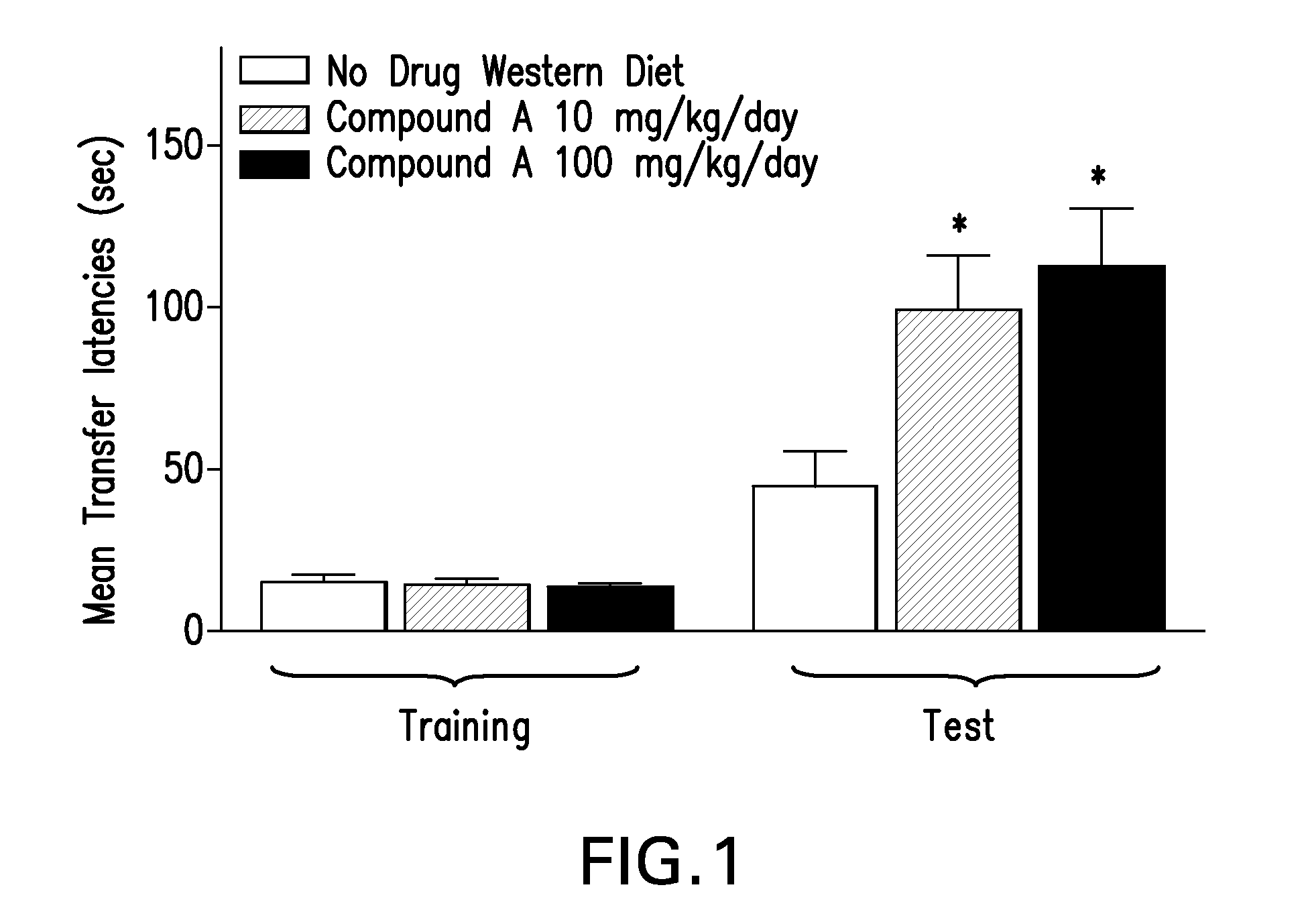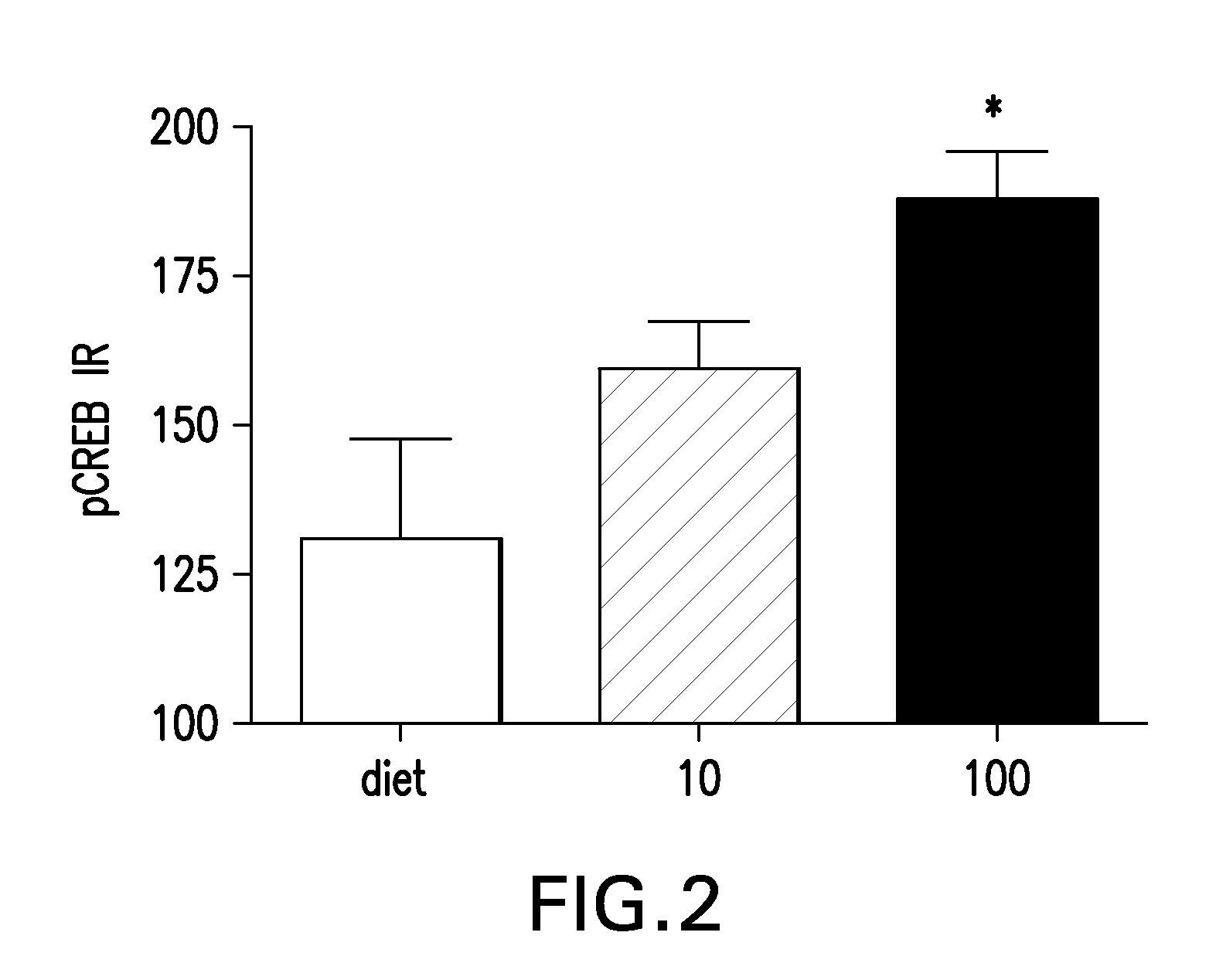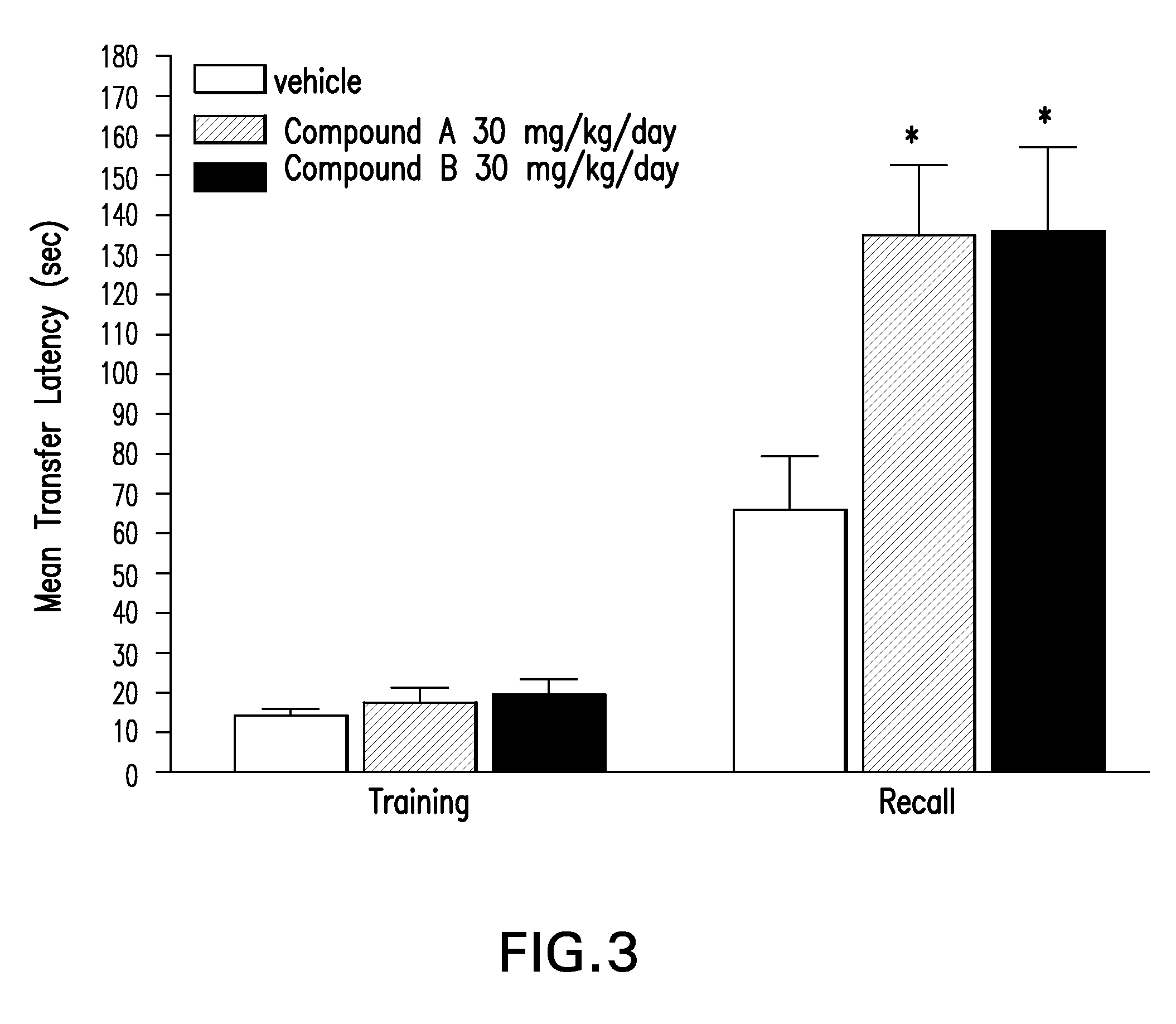Treatment of central nervous system disorders
a central nervous system and disorder technology, applied in the field of central nervous system disorders, cognitive deficits and dementias, can solve the problems of increased anxiety and aggression, neuronal loss and neuronal dysfunction, and impaired cognitive function that becomes more profound
- Summary
- Abstract
- Description
- Claims
- Application Information
AI Technical Summary
Problems solved by technology
Method used
Image
Examples
example 1
Selective 11β-HSD1 Inhibitors Enhance Memory Consolidation in Mice After 2-Week Food-in-Diet Dosing
[0551]Episodic memory is a type of long-term memory that requires one exposure for memory formation to occur. Patients with Alzheimer's disease suffer from episodic memory dysfunction, among other cognitive deficits. In addition, studies indicate that patients with a genetic risk for Alzheimer's disease have early deficits in episodic memory and executive function (Ringman, J. Geriatr. Psychiatry Neurology, 2005, 18:228-233).
[0552]The 24-hour inhibitory avoidance task in mice is a measure of one-trial learning and memory consolidation in response to a discrete aversive event (foot-shock). Mice are first placed in an illuminated compartment of a two-compartment apparatus. Mice will naturally step through into an adjoining dark compartment, which they prefer. When the mice enter the dark they receive a mild foot-shock. To assess memory, mice are tested 24 hours later and the length of ti...
example 2
A Selective 11β-HSD1 Inhibitor Enhances Phosphorylated CREB, a Biochemical Marker of Cognitive Enhancement in Mice After 2-Week Food-in-Diet Dosing
[0556]In vivo signaling studies were conducted to examine the biochemical pathways that may be mechanistically involved in the cognitive efficacy associated with Compound A. An important signaling process that serves as a biochemical correlate of synaptic plasticity underlying learning and memory is the phosphorylation of CREB (c-AMP-response element binding protein), a transcription factor critical to long-term memory. To investigate the effects of Compound A on CREB phosphorylation, CD1 mice treated and tested (data presented in FIG. 1) were given a 24-hour rest after testing before immunohistochemical procedures commenced.
[0557]Male CD-1 mice were obtained from Charles River, Wilmington, Mass. Mice were group-housed 10 per cage. The body weight upon arrival was 20-25 g. Food and water were available ad libitum except during experiments...
example 3
Selective 11β-HSD1 Inhibitors Enhance Memory Consolidation in Mice After Subchronic Dosing
[0559]The 24-hour inhibitory avoidance model in mice was used to evaluate the effects of Compound A and Compound B ([N-{(E)-5-[(Z)-Amino(hydroxyimino)methyl]-2-adamantyl}-2-(4-chlorophenoxy)-2-methylpropanamide]) following a subchronic (3 administration) dosing regimen.
[0560]Male CD-1 mice were obtained from Charles River, Wilmington, Mass. Mice were group-housed 10 per cage. The body weight upon arrival was 20-25 g. Food and water were available ad libitum except during experiments. Animals were acclimated to the animal facilities for a period of at least one week prior to commencement of experiments. Animals were tested in the light phase of a 12-hour light: 12-hour dark schedule (lights on 0600 hours).
[0561]Compound A and Compound B were synthesized at Abbott Laboratories. Compounds A and B were solubilized in a solution of 5% Tween80 / water. Compound A was administered in a cloudy, fine susp...
PUM
| Property | Measurement | Unit |
|---|---|---|
| Rg | aaaaa | aaaaa |
| Rg | aaaaa | aaaaa |
| Rg | aaaaa | aaaaa |
Abstract
Description
Claims
Application Information
 Login to View More
Login to View More - R&D
- Intellectual Property
- Life Sciences
- Materials
- Tech Scout
- Unparalleled Data Quality
- Higher Quality Content
- 60% Fewer Hallucinations
Browse by: Latest US Patents, China's latest patents, Technical Efficacy Thesaurus, Application Domain, Technology Topic, Popular Technical Reports.
© 2025 PatSnap. All rights reserved.Legal|Privacy policy|Modern Slavery Act Transparency Statement|Sitemap|About US| Contact US: help@patsnap.com



